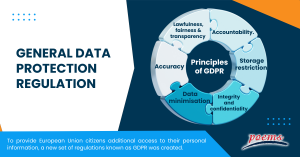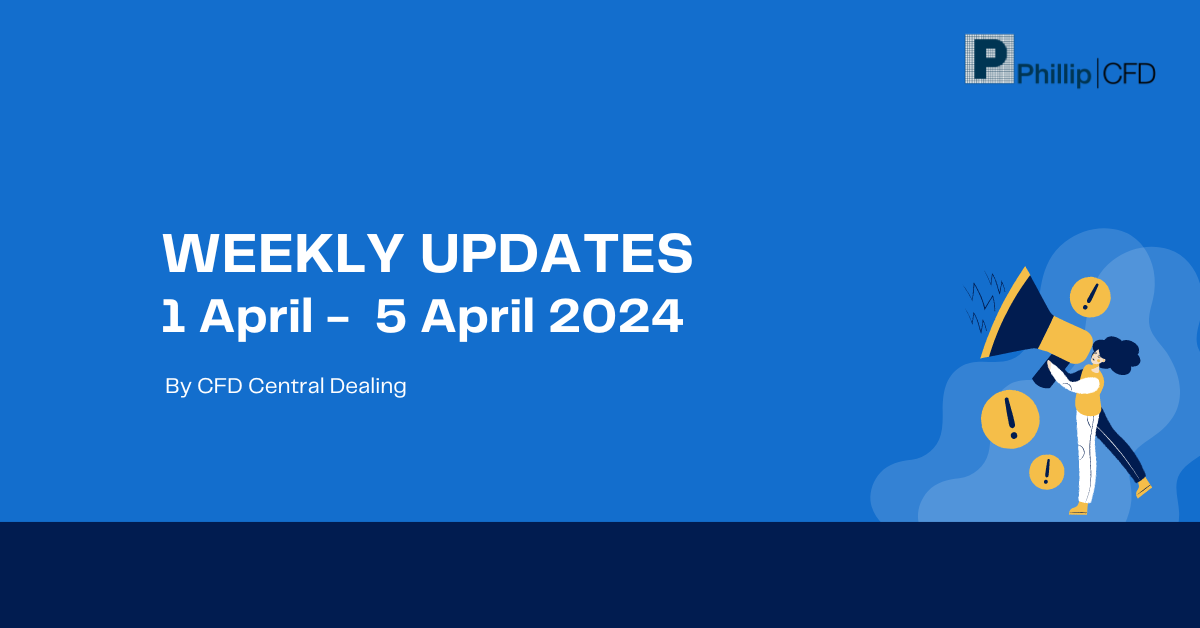GDPR
Table of Contents
General Data Protection Regulation
It should come as no surprise that there would be strict laws protecting people’s data from large organisations and the government in a future where data is seen as the most valuable resource. In Europe, the GDPR, or General Data Protection Regulation, has replaced older data privacy laws that were nearly two decades old, some of which were initially developed in the 1990s. Since then, our data-intensive lives have developed, and individuals often share their private information online without restriction. The GDPR is the world’s most robust collection of data protection laws.
What is GDPR?
To provide European Union citizens additional access to their personal information, a new set of regulations known as GDPR was created. It seeks to streamline the regulatory landscape for business so that everyone in the EU—citizens and companies—can fully take advantage of the digital economy.
The GDPR establishes a new baseline for consumer rights surrounding personal data. Still, businesses will face challenges in implementing the necessary systems and procedures to remain compliant.
Understanding GDPR
Although adopted in 2016 by the European Parliament, the law didn’t prevail until May 2018. GDPR replaced a previous law, the Data Protection Directive and also provides standards for how information is transmitted, whether done wholly or mostly by digital means. This new EU framework has ramifications for organisations in all member states, people, and enterprises throughout Europe and beyond.
In accordance with the terms of the GDPR, organisations are not only required to ensure that personal data is obtained legally and per strict guidelines but also that those who obtain and manage it are obligated to safeguard it from misuse and exploitation and to uphold the rights of data owners – or face penalties for doing otherwise.
History of GDPR
GDPR replaces the 1995 Data Protection Act and sets specific data protection regulations. Organisations must protect user data from accidental or unauthorised access, destruction, alteration, or unauthorised use. They must also ensure that data is quality controlled to protect against unauthorised access, alteration, or destruction. Lastly, they must take steps to ensure that individuals have the right to information about their data protection rights and access to it.
Under the GDPR, organisations must provide customers with a data protection notice (DPN) specifying the specific rights that the customer has. Customers have the right to access their data, change their data protection settings, receive data protection notices in a Format that they can understand, and complain if they feel their rights have not been fully respected.
In recent years, there have been various changes to GDPR. Important modifications to the GDPR’s provisions were made in 2021. One example is removing the privacy shield established to facilitate economic transactions between US corporations and EU residents.
Principles of GDPR

The seven guiding principles of GDPR are:
- Accuracy
- Lawfulness, fairness & transparency
- Data minimisation
- Storage restriction
- Integrity and confidentiality (security),
- Accountability.
These principles are also known as the “core values” of the GDPR. However, one of the above principles, i.e., accountability, is new to data protection laws. The other principles are equivalent to those in place before the 1998 Data Protection Act in the UK.
Impact of GDPR
The GDPR has significantly impacted how companies process and protect the personal data of EU citizens. Many companies have had to change their data collection and processing practices to comply with the GDPR. Some companies have also stopped doing business with the EU to avoid complying with the GDPR.
Under Article 83(5)(a), the highest administrative fines are applied to violations of the fundamental principles for processing personal data. This entails potential penalties of up to 4% of your entire annual international revenue or £17.5 million (US$21 million), whichever is larger.
Fines under the GDPR are discretionary instead of compulsory. They must be “effective, proportional, and dissuasive” and be used case-by-case.
Frequently Asked Questions
Companies need to do a few key things to comply with GDPR.
- First, they need to appoint a Data Protection Officer (DPO). This person is responsible for overseeing the company’s compliance with GDPR.
- Second, companies must implement policies and procedures to ensure that personal data is collected, stored, and processed in a way compliant with GDPR. This includes ensuring that personal data is only collected for specific, legitimate purposes, stored securely, and authorised individuals only access it.
- Finally, companies must provide individuals with information about their rights under GDPR and ensure they have a mechanism for exercising those rights.
The term “GDPR compliance” refers to an organisation’s ability to handle personal data in accordance with the GDPR’s defined standards. To comply with the GDPR’s regulations on the use of personal data, enterprises must adhere to a set of rules. Moreover, it specifies eight rights for data subjects that offer some protections for people’s private information.
The GDPR applies to any company that processes the personal data of EU citizens, regardless of where the company is located. This includes companies based outside the EU that offer goods or services to EU citizens or that collect or process the personal data of EU citizens.
Any information about a natural person (referred to as a “data subject”) that relates to their professional, personal, or public life and can be used to directly or indirectly recognise that person is referred to as personal data under GDPR law. Examples include names, photos, email addresses, or even bank records.
These also comprise any information that has been or might be connected to a person. Personal data includes a person’s phone number, credit card number, employee ID, account information, number plate information, appearance, customer number, or address.
On April 14, 2016, the European Parliament adopted GDPR, which came into force on May 25, 2018.
Related Terms
- Mark-to-market
- Federal Open Market Committee
- FIRE
- Applicable federal rate
- Assets under management
- Automated teller machine
- Central limit theorem
- Balanced scorecard
- Analysis of variance
- Annual percentage rate
- Double Taxation Agreement
- Floating Rate Notes
- Average True Range (ATR)
- Constant maturity treasury
- Employee stock option
- Mark-to-market
- Federal Open Market Committee
- FIRE
- Applicable federal rate
- Assets under management
- Automated teller machine
- Central limit theorem
- Balanced scorecard
- Analysis of variance
- Annual percentage rate
- Double Taxation Agreement
- Floating Rate Notes
- Average True Range (ATR)
- Constant maturity treasury
- Employee stock option
- Hysteresis
- RevPAR
- REITS
- General and administrative expenses
- OPEX
- ARPU
- WACC
- DCF
- NPL
- Capital expenditure (Capex)
- Balance of trade (BOT)
- Retail price index (RPI)
- Unit investment trust (UIT)
- SPAC
- GAAP
- GATT
- Irrevocable Trust
- Line of credit
- Coefficient of Variation (CV)
- Creative Destruction (CD)
- Letter of credits (LC)
- Statement of additional information
- Year to date
- Certificate of deposit
- Price-to-earnings (P/E) ratio
- Individual retirement account (IRA)
- Quantitative easing
- Yield to maturity
- Rights of accumulation (ROA)
- Letter of Intent
- Return on Invested Capital (ROIC)
- Return on Equity (ROE)
- Return on Assets (ROA)
Most Popular Terms
Other Terms
- Settlement currency
- Federal funds rate
- Active Tranche
- Convertible Securities
- Synthetic ETF
- Physical ETF
- Initial Public Offering
- Buyback
- Secondary Sharing
- Bookrunner
- Notional amount
- Negative convexity
- Jumbo pools
- Inverse floater
- Forward Swap
- Underwriting risk
- Reinvestment risk
- Final Maturity Date
- Payment Date
- Secondary Market
- Margin Requirement
- Pledged Asset
- Yield Pickup
- Subordinated Debt
- Trailing Stops
- Treasury Stock Method
- Stochastic Oscillator
- Bullet Bonds
- Basket Trade
- Contrarian Strategy
- Exchange Control
- Notional Value
- Relevant Cost
- Dow Theory
- Speculation
- Stub
- Trading Volume
- Going Long
- Pink sheet stocks
- Rand cost averaging
- Sustainable investment
- Stop-limit sell order
- Economic Bubble
- Ask Price
- Constant prepayment rate
- Covenants
- Stock symbol
- Companion tranche
- Synthetic replication
- Bourse
Know More about
Tools/Educational Resources
Markets Offered by POEMS
Read the Latest Market Journal

In the diverse and complex world of investing, unit trusts stand out as a popular...

Back in Business: The Return of IPOs & Top Traded Counters in March 2024
Start trading on POEMS! Open a free account here! At a glance: Major indices continue...

Weekly Updates 15/4/24 – 19/4/24
This weekly update is designed to help you stay informed and relate economic and company...

From $50 to $100: Unveiling the Impact of Inflation
In recent years, inflation has become a hot topic, evoking strong emotions as the cost...

Japan’s Economic Resurgence: Unveiling the Tailwinds Behind Nikkei 225’s Record Leap
Source: eSignal, Intercontinental Exchange, Inc. In the heart of Japan’s economic landscape, the Nikkei 225...

Weekly Updates 8/4/24 – 12/4/24
This weekly update is designed to help you stay informed and relate economic and...

What Makes Forex Trading Attractive?
In a world where the click of a button can send goods across oceans and...

Weekly Updates 1/4/24 – 5/4/24
This weekly update is designed to help you stay informed and relate economic and company...












